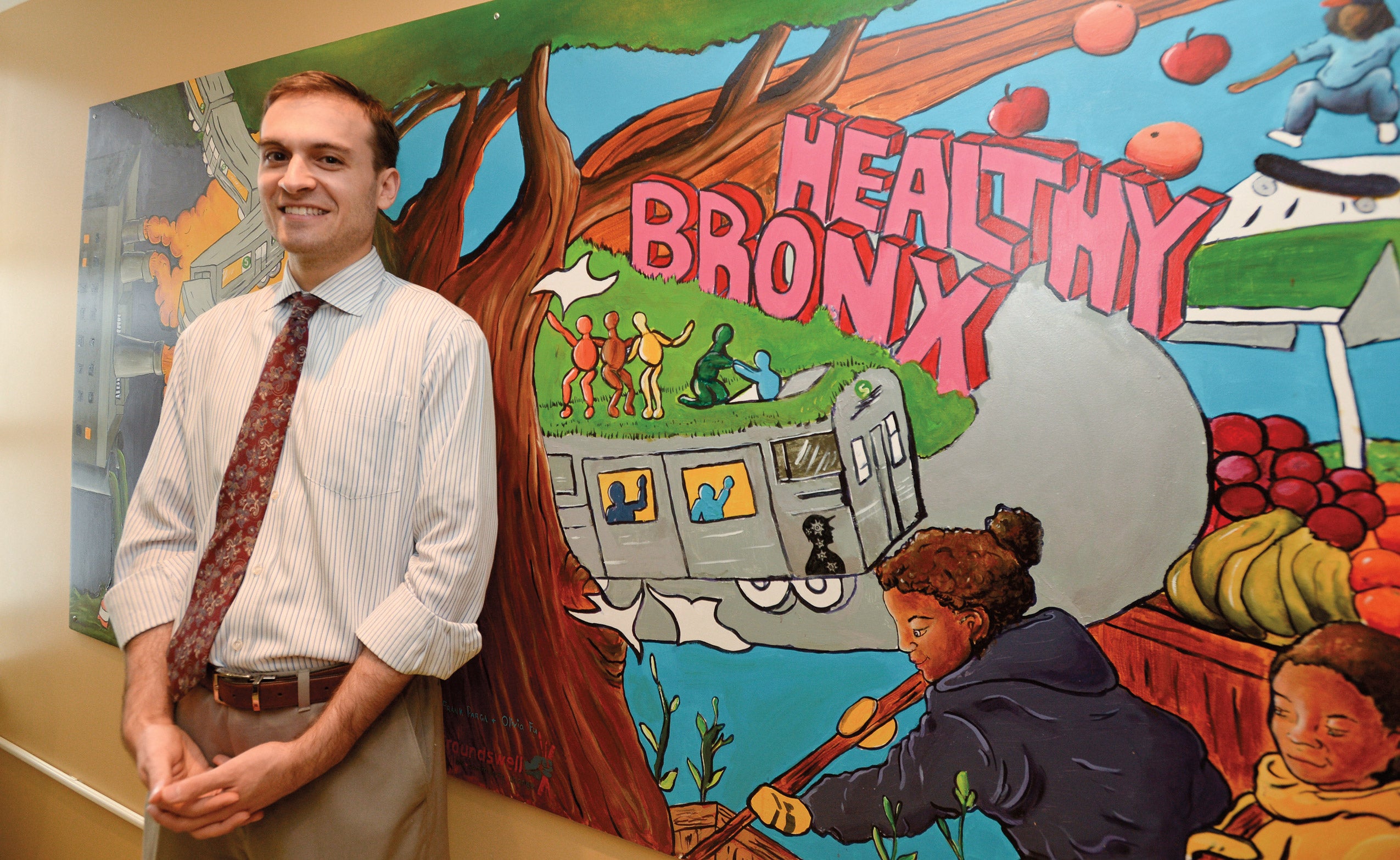When Vladimir Gongora, a deaf teenager who fled El Salvador, first met with Brett Stark ’12 two years ago in the Immigrant and Refugee Services Division at Catholic Charities in New York, the two had to draw pictures to communicate. Vladimir had never been taught to write or use sign language, and he needed Stark to help him win the legal right to stay in the United States.
Stark found him a special interpreter, one versed in communicating with hearing-impaired people without formal language skills. He then built a successful asylum case for the teenager on the grounds that Salvadoran law forbade people with serious disabilities from marrying or even acquiring a passport.
This was part of the inspiration for Terra Firma, a project co-founded by Stark, with Dr. Alan Shapiro and Dr. Cristina Muniz De la Pena, which offers legal and health services to unaccompanied minors who’ve crossed into the U.S.
Terra Firma provides a panoply of services to young people like Vladimir, to address the wide range of issues that often accompany their cases. This holistic approach not only helps to meet children’s immediate needs; it helps Stark in the courtroom.
Reports by Terra Firma doctors and mental health professionals often include evidence that children were persecuted and even faced life-threatening dangers in their home countries. In addition, medical and mental health providers can help to stabilize children, preparing them to assist and testify in their own cases.
This, Stark says, is “crucial for a child’s own well-being and future, but also enhances and facilitates the legal case. We really feel the legal case gets better when children can tell their story.” For these clients, he usually seeks asylum or Special Immigrant Juveniles status—a benefit for children who’ve been abused, neglected or abandoned.
“We were working in silos, and that was really less effective than working collaboratively on immigration issues that have a medical component and medical issues that have an immigration component,” Stark says.
Terra Firma now includes about 15 people—Stark and other lawyers at Catholic Charities, two doctors, a psychologist, a social worker, a nutritionist, a project coordinator and support staff.
Initially started with funding from an Equal Justice Works fellowship, Terra Firma is now supported by Catholic Charities, Montefiore Medical Center, and the Children’s Health Fund, and more sources of private and public funding may become available as the issue of unaccompanied immigrant children attracts more national attention.
Stark first saw the need for a medical-legal partnership like Terra Firma while working at a refugee resettlement organization in Kenya during the summer after his 2L year at HLS. There he referred rape victims to counselors and introduced people who thought they might have AIDS to doctors. When he got back to HLS that fall, he participated in the Trauma and Learning Policy Initiative’s Education Law Clinic, an experience that confirmed for Stark the effectiveness of combining legal aid with medical and psychological services.
Terra Firma has worked with around 100 children so far, and it is expecting to see twice as many over the next year. Clients in immigration cases, including children, do not have the legal right to publicly funded immigration lawyers, so the demand is great.
As challenging as the workload and nature of the cases may be, Stark says he stays inspired by his clients’ tenacity. “Working with kids is extremely and extraordinarily motivating,” he says. “Kids are resilient, and these kids have been through a lot and have so much potential to actualize if they just can get the right kind of help.”
